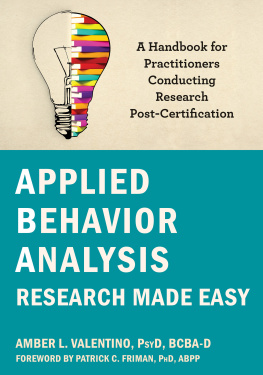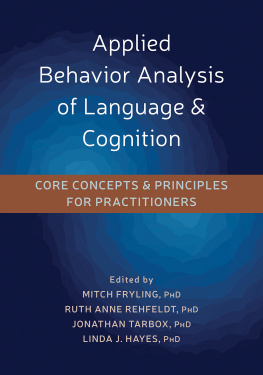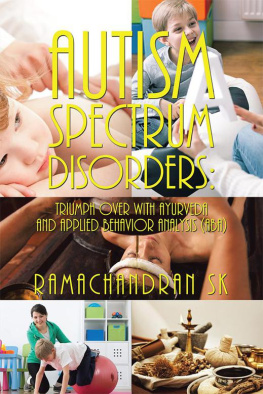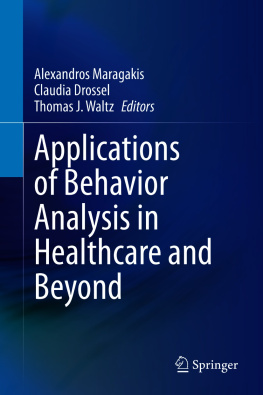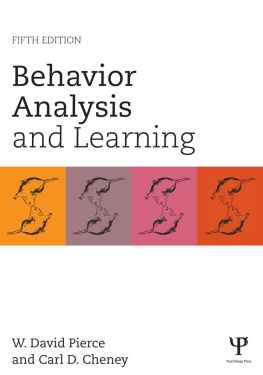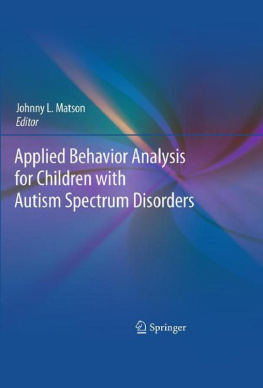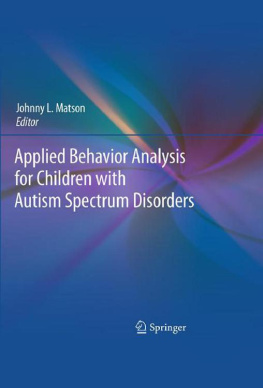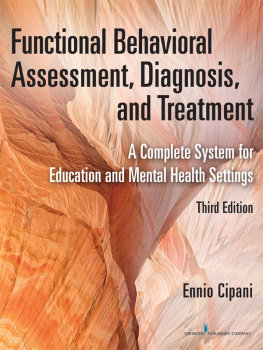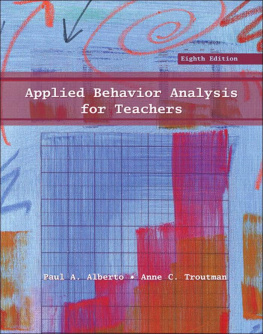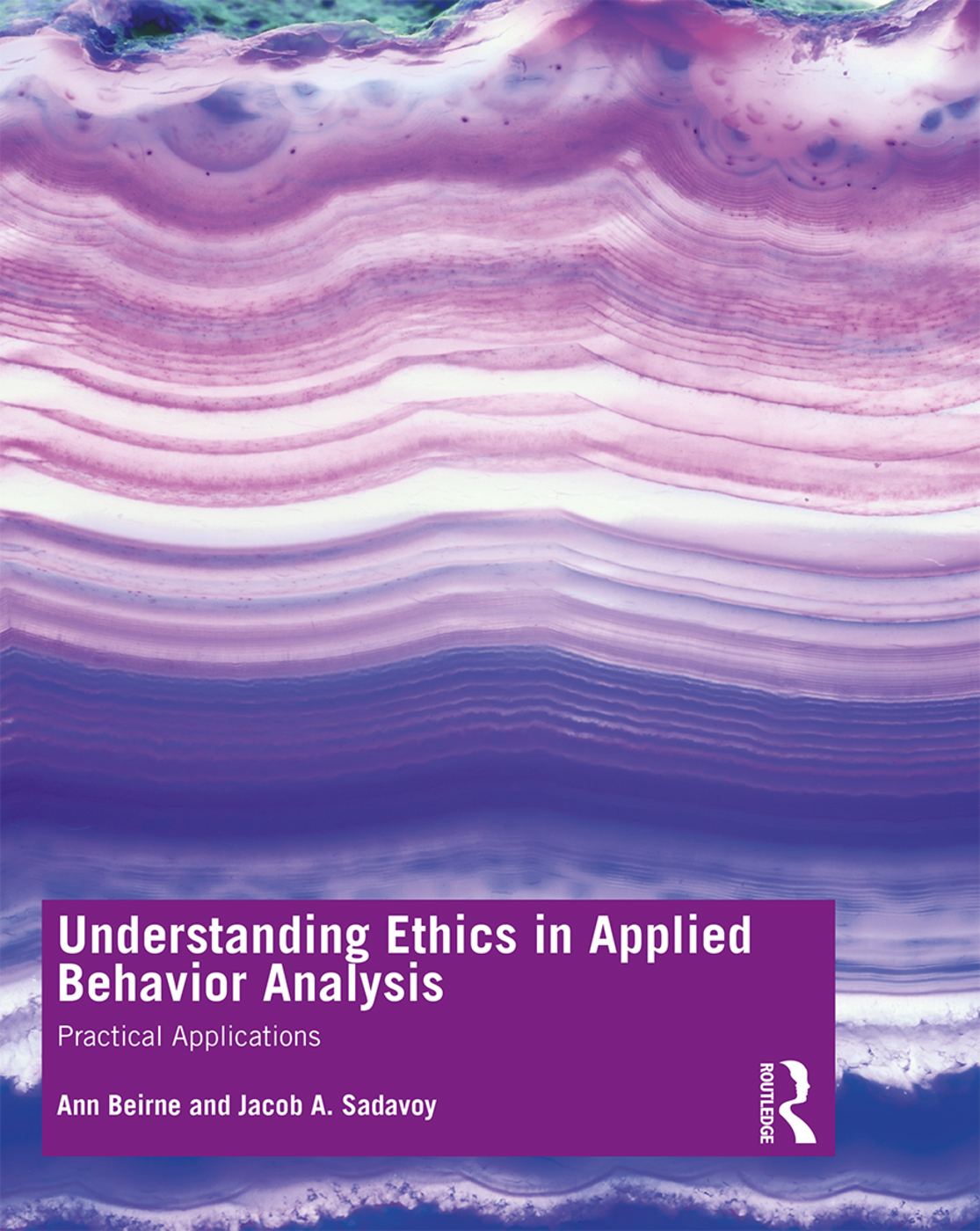Understanding Ethics in Applied Behavior Analysis
Drawing upon combined 35 years of clinical experience as well as the reflections of colleagues in the field, Understanding Ethics in Applied Behavior Analysis provides the foundation for a lifelong journey of ethical practice in service for individuals with autism spectrum disorder (ASD) and other developmental disabilities. This book includes an explanation of each element in the Behavior Analyst Certification Board (BACB) Professional and Ethical Compliance Code for Behavior Analysts, along with insightful examples, thought-provoking considerations, and contributions from experts in the field. This text also addresses professional behavior for the behavior analyst when fulfilling roles as teacher, employee, manager, colleague, advocate, or member of a multidisciplinary team.
Ann Beirne , MA, BCBA, is a board-certified behavior analyst who has worked with individuals with ASD and their families as a clinician for over 20 years, serving as a teacher, consultant, and adjunct professor. She is the author of many presentations on autism and behavior analysis and served as the 2019 president of the Association for Behavior Analysis Internationals Ethics and Behavior Analysis Special Interest Group.
Jacob A. Sadavoy , MS, BCBA, has devoted 20 years to applying the principles of behavior analysis in schools, centers, business, hospitals, and homes around the world. He is the clinical director of the Global Autism Project, VCS coordinator, and current vice president of the Ethics and Behavior Analysis (EBA) SIG.
First published 2019
by Routledge
52 Vanderbilt Avenue, New York, NY 10017
and by Routledge
2 Park Square, Milton Park, Abingdon, Oxon, OX14 4RN
Routledge is an imprint of the Taylor & Francis Group, an informa business
2019 Taylor & Francis
The right of Ann Beirne & Jacob A. Sadavoy to be identified as authors of this work has been asserted by them in accordance with sections 77 and 78 of the Copyright, Designs and Patents Act 1988.
All rights reserved. No part of this book may be reprinted or reproduced or utilised in any form or by any electronic, mechanical, or other means, now known or hereafter invented, including photocopying and recording, or in any information storage or retrieval system, without permission in writing from the publishers.
Trademark notice: Product or corporate names may be trademarks or registered trademarks, and are used only for identification and explanation without intent to infringe.
Library of Congress Cataloging-in-Publication Data
Names: Beirne, Ann, author. | Sadavoy, Jacob A., author.
Title: Understanding ethics in applied behavior analysis: practical applications / Ann Beirne & Jacob A. Sadavoy.
Description: New York, NY: Routledge, 2019. | Includes bibliographical references and index.
Identifiers: LCCN 2018059743 (print) | LCCN 2018060176 (ebook) | ISBN 9780429453168 (E-book) | ISBN 9781138320611 (hbk) | ISBN 9781138320628 (pbk.)
Subjects: | MESH: Applied Behavior Analysisethics | Autism Spectrum Disordertherapy
Classification: LCC RC570 (ebook) | LCC RC570 (print) | NLM WM 425.5.A7 | DDC 616.85/88dc23
LC record available at https://lccn.loc.gov/2018059743
ISBN: 978-1-13832-061-1 (hbk)
ISBN: 978-1-13832-062-8 (pbk)
ISBN: 978-0-42945-316-8 (ebk)
Typeset in Sabon
by codeMantra
Dedicated to Will, Claire, and Sam, who inspire me every day to be better.
ABTo my colleagues who have inspired me to be a better clinician and my parents for teaching me to go beyond right and wrong.
JASMolly Ola Pinney
When I was first asked to write the foreword to this book, my immediate thought was that I had a lot to say, and I welcomed the opportunity. Soon after, the reality of what that meant started to set in. I suddenly felt ill-equipped to do anything like that to be the voice behind the first pages one reads when they open this book. It felt a bit strange that my first professional publication would be the foreword of a textbook. I did some research on forewords which confirmed what I already knew the purpose of this section is to offer credibility to the book.
Credibility to this book.
As I thought more about this, and put writing it off to the last possible moment, I realized that the exact reasons I was resisting were likely a mirror of others thoughts when they consider speaking out about any ethical issues. I hypothesized that others, when asked to comment on ethical issues, may also feel as though theyre not credible or lack the authority to do so.
I tested this and asked a group of people if they felt they had any authority or power to speak out on ethical issues in the field of behavior analysis. Many said no. I also asked if they had opinions about aspects of the ethics code many said yes. When asked why they hadnt spoken out, they cited reasons such as: I dont know enough about it, or maybe its just me who sees it this way. Spoiler alert: its not, and several people know that firsthand from talking quietly among their friends. One of the many people I spoke with said it seems like shes not really in a position to speak out on such things because she doesnt have a Doctorate. The irony, of course, being that you dont need a degree to know if something doesnt sit well, or seems problematic and if it feels that way to you, theres a good chance it feels that way to someone else.
I soon realized that I was more than qualified to write this section of the book, as I had viewed the ethics code and its many challenges through the eyes of hundreds of practitioners who were navigating it all over the world. Fifteen years ago, I started the Global Autism Project, a US-based nonprofit organization that works to build local capacity for autism services worldwide. We do this by partnering with local autism organizations already providing services in their communities, and train them in the administrative and clinical skills needed to successfully run a center, and in some cases, to become Board Certified Behevior Analysts (BCBAs). In order to train people to become BCBAs, we build partnerships with universities around the world and it was in this effort that we immediately recognized an urgent need for new voices in Ethics of Behavior Analysis.
Many of the practitioners Id talked with in the field said that the ethics of this field in particular seemed more complex than others. Its definitely nuanced and specific, and I would argue that specificity gives rise to complexity. When I see questions such as should I accept a glass of water on a hot day? met with a strong No, I feel concerned about our interpretation and hyperfocus on the code. At times, I feel were considering the minutiae of the code sometimes at the peril of the bigger issues, the larger questions and aspects that keep people from accessing services, or knowing about Behavior Analysis at all.
I know some people will read this and not agree and thats fine; as you start to engage in conversation about the ethics code youll likely be met with conflict at times as well. That doesnt mean you should keep quiet. Ethics is not black and white. It cant be humans and the human condition are not clear cut. There may be a subtle point made by someone else that changes your opinion on something. Nothing made this clearer to me than my experiences in Ghana, where I lived when I started the Global Autism Project, and learned the importance of learning from others experiences and collaborating as much as possible before making any suggestions or recommendations.


